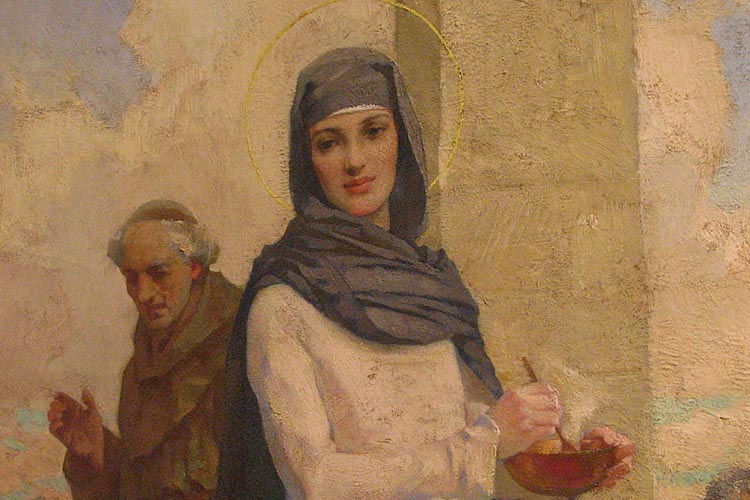Feast Day: 17 November
The background
After the Romans had left Britain and the Saxons had invaded (pushing the native Britons to what we now know as Wales, Cornwall and Cumberland), most of England was pagan and worshiped the Saxon Gods rather than the Christian. England was divided into several kingdoms and while several rose and fell the notable ones were Wessex (the south), Mercia (the midlands), Northumbria (the north) and East Anglia. Before vast swathes of England were taken by the Saxons, however, St. Patrick had be captured by Irish pirates, an event which in the long run would result in Ireland’s conversion and, subsequently, the incredible missionaries who came over from Ireland to England to bring the Saxon kingdoms into the Christian world. This is the story of one such missionary.
A bit about Saint Hilda of Whitby
Saint Hilda of Whitby was a missionary; however, not in the way we commonly think of missionaries today. Growing up in Northumbrian nobility, she was caught up in much of the warring and court intrigue of the day until eventually having to flee in exile. This happened while she was still young and was because of the need to escape the court after the death of the king in battle against the Mercian. During her exile she was called back to Northumbria by another famous missionary, St Aiden of Lindisfarne. He invited her to become a nun and help to spread the faith throughout the isles. Hilda accepted and joined an abbey.
Here is how we sometimes see abbeys now and how these missionary abbeys differ massively. We sometimes imagine abbeys to be isolated communities cut off from the outside world. While some do have this aspect to them it’s certainly not a blanket rule and certainly wasn’t the case when it came to these missionary abbeys back in Hilda’s life time. These abbeys would provide everything from education to health care and became the centre of many communities. They were stark contrasts to the brutal, cut-throat world of feudalism and where all property and goods were held in common; Christian virtues were exercised, especially peace and charity. Everyone had to study the Bible and do good works.
After excelling in her first abbey, she was soon appointed Abbess of Hartlepool Abbey and would go on to found her own abbey at Whitby as well. Hilda was a woman of great energy, who was a skilled administrator and teacher. As a landowner, she had many in her employ to care for sheep and cattle, farming and woodcutting. She gained such a reputation for wisdom that even kings and princes sought her advice.
She also had a deep concern for the peasants and poor, and encouraged even the lowliest to develop and excel in their talents. St Bede, a historian, scholar and monk who lived at the time sums her up as “All who knew her called her mother because of her outstanding devotion and grace”.
Why St Hilda inspires me
A reflection from someone in our young Catholic community
The reason St Hilda (also known as St Hild), inspires me so much is because she shows just how revolutionary authentic Christian living is. She had so many roles as head of the community but in every one of them focused it on loving God and loving her neighbour. The results were incredible and it is no wonder that when exposed to this beautiful way of living so many people decided to convert to Christianity and share in this mission.
St Hilda of Whitby is also a fantastic example of the freeing nature of the Christian faith. In normal life she would have just been another pawn in the game of kings yet in coming to Christ she received love, respect and joy which she was then empowered to go out and share with others.
